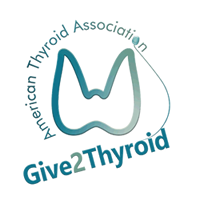BACKGROUND
Thyroid hormone is necessary for development and growth of brain in developing babies during pregnancy. It is well known that untreated overt hypothyroidism in the mother can have significant effects on the brain development of their children. Due to this important role of thyroid hormone, numerous research studies have been conducted in the past to address the relationship between thyroid hormone levels in pregnant women and the status of intelligence and brain development in their children. The brain development affected is the brain’s ability and performance in the areas of learning, social skills, focus, attention as well as motor function (for example learning to ride a bike).
So far, the results of these studies have been somewhat different from each other but a evaluation of 37 studies showed that even subclinical hypothyroidism and low thyroid hormone levels without hypothyroidism may be associated with some developmental problems in children. However none of the past research studies evaluated the performance of the children born from mothers with thyroid problems in educational exams.
This present study was aimed to assess any potential relationship between the results of standardized educational assessment tests of children and the thyroid function status of their mother at the time of pregnancy.
THE FULL ARTICLE TITLE:
Nelson SM et al 2018 Maternal thyroid function and child educational attainment: prospective cohort study. British Medical Journal; 360:k452. PMID: 29463525
SUMMARY OF THE STUDY
From 1990 to 1992, a total of 14,541 pregnant women were enrolled in a study called Avon Longitudinal Study of Parents and Children (ALSPAC) in Birmingham, England. The study followed the children and their parents for the following two decades. The scores of National Standardized tests taken by the children were used in this study. The tests were done at certain ages. At school entry (ages 4 to 5), every child was assessed for language, math, social skills, problem-solving and motor skills. National tests were done at ages 7, 11 and 14 covering English, math and science subjects. At age 16, at the end of secondary education, students took an examination called GCSE.




